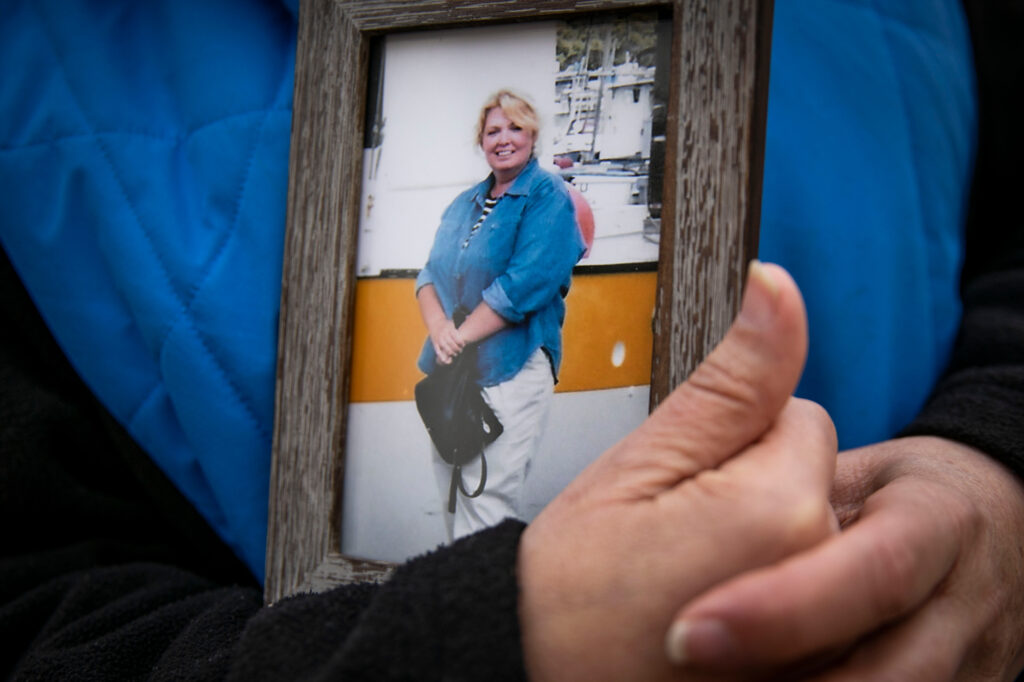On one of her many days in the hospital in 2017, Cathy asked her partner not to tell the nursing staff they were married. She’d been diagnosed with a rare form of leukemia, and Cathy feared the care she got would suffer if the staff knew she was a lesbian.
“She says, ‘Don’t tell the nurses that we’re married,’” said Cathy’s wife, Esther Lucero. “And I said, ‘Why?’ And she says, ‘Because they’re treating you differently. They’re treating me differently.’”
According to a study recently published in The Gerontologist, older people who are lesbian, gay, bisexual, transgender or queer often face discrimination during end-of-life care. They’re also more likely to have their health care wishes ignored or disregarded.
Many LGBTQ seniors go back into the closet because of a lack of family or social support in health care, assisted living and hospice facilities.
In the hospitals, Lucero initially told health care staff that Cathy was her wife. She said some responded well, while others seemed off-put. And that bothered Cathy. Looking back, Lucero said she thought they were treated differently at times because they were gay. One nurse seemed to avoid Cathy’s room. And sometimes others would wait for Lucero to leave before telling Cathy details about her condition.
“I was hurt,” Lucero said. “We had waited so long to be married. And to me, it was like, ‘Hey, I’m married to her.’ And it just hurt. I don’t even know how to say it. I know I cried that night.”
Lucero met Cathy in 1980 while they worked together in Denver. At first, they were friends.
“It was nothing at the beginning,” Lucero said. “But she told me, ‘The first day I met you, I said I want to spend the rest of my life with that girl.’”
 Hart Van Denburg/CPR News
Hart Van Denburg/CPR NewsAfter a few years, they started dating. Then they moved in together and bought a house. In 2015, they got married. But a couple years later, they both got sick with what seemed like bad colds. Lucero improved, but Cathy got sicker. After a few trips to the hospital, a doctor finally discovered Cathy had T-cell prolymphocytic leukemia. She died six months later at age 63.
The loss devastated Lucero, who had few places to turn for support. CPR News agreed not to use Cathy’s last name because Lucero said she was very private about being a lesbian. Lucero said they never held hands or kissed in public. Their families knew they lived together, but some thought it was just as roommates. Other relatives refused to discuss or accept that they were in love. They’d also kept their relationship a secret from a lot of colleagues and neighbors.
That’s common for older LGBTQ adults, said Carey Candrian, an assistant professor and researcher at the University of Colorado. And many feel isolated, she added.
“And I just get chills when I say that, because I think for people who don’t identify as LGBT, I think it’s so easy to forget the work that hiding requires,” Candrian said.

